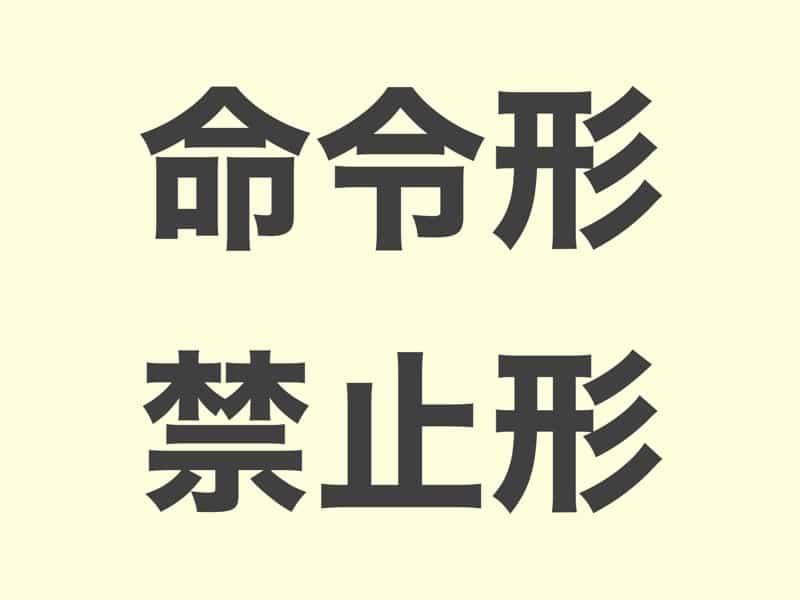In Japanese, the ability to give commands or express prohibitions is crucial for effective communication. Let’s dive into the intricacies of the imperative and prohibitive forms to enhance your conversational skills! However, keep in mind that these forms can sound quite strong, so they are generally not used even with friends or family.
JLPT Textbook Recommendations
Group 1 (U-Verbs)
Rule: Change the last “i” sound in the verb to “e” for imperative form.
For the prohibitive form, use the dictionary form of the verb and add な (na).
| Verb(masu form) | Imperative Form | Prohibitive form |
| いいます (iimasu) | いえ (ie) | いうな (iuna) |
| かきます (kakimasu) | かけ (kake) | かくな (kakuna) |
| およぎます (oyogimasu) | およげ (oyoge) | およぐな (oyoguna) |
| だします (dashimasu) | だせ (dase) | だすな (dasuna) |
| たちます (tachimasu) | たて (tate) | たつな (tatsuna) |
| あそびます (asobimasu) | あそべ (asobe) | あそぶな (asobuna) |
| のみます (nomimasu) | のめ (nome) | のむな (nomuna) |
| すわります (suwarimasu) | すわれ (suware) | すわるな (suwaruna) |
Group 2 (Ru-Verbs)
Rule: Simply remove ます (masu) and add ろ (ro) for the imperative form.
For the prohibitive form, use the dictionary form of the verb and add な (na).
| Verb(masu form) | Imperative Form | Prohibitive form |
| やめます (yamemasu) | やめろ (yamero) | やめるな (yameruna) |
| みます (mimasu) | みろ (miro) | みるな (miruna) |
Group 3 (Irregular Verbs)
Rule: These verbs are irregular and must be memorized. For the prohibitive form, use the dictionary form of the verb and add な (na).
| Verb(masu form) | Imperative Form | Prohibitive form |
| します (shimasu) | しろ (shiro) | するな (suruna) |
| きます (kimasu) | こい (koi) | くるな (kuruna) |





コメント